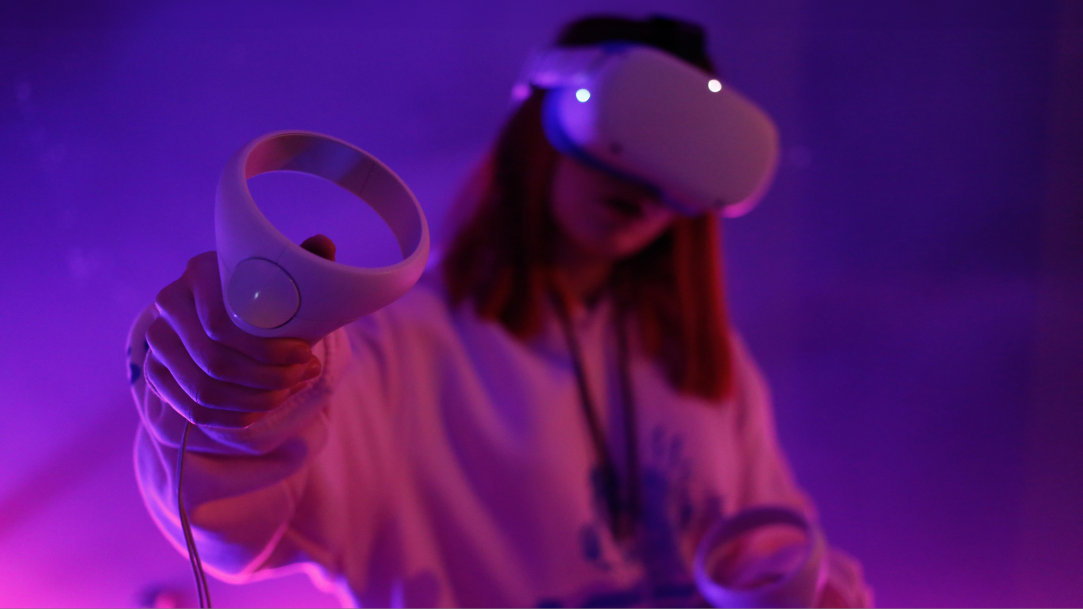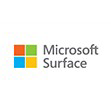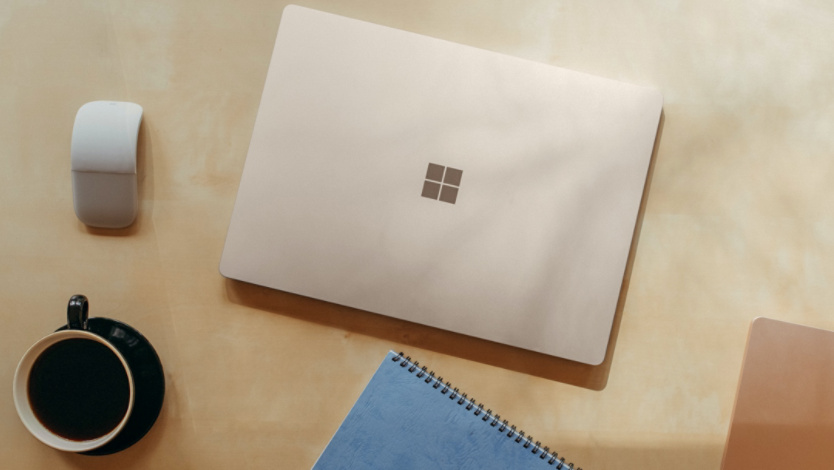
October 09, 2024
The best PC features for VR gaming
Virtual reality (VR) games are increasingly popular for their immersive experiences in digital worlds. Whether you’re battling dragons, exploring distant planets, or creating art in 3D space, having the right PC setup is crucial for an enjoyable VR session. In this article, we’ll break down the essential features you need for an optimal VR gaming experience.
Maximize your VR gaming performance and experience

Credit: Designer in Copilot
When it comes to getting the most out of your virtual reality game experience, you want to consider smooth frame rates, reducing latency, and maintaining high-resolution visuals. A powerful PC with the right components— robust graphics processors, capable central processors, plentiful memory, and compatible software—can help achieve these goals, providing a seamless and immersive VR experience.
A powerful GPU
Your graphics processing unit, or GPU, is the heart of VR gaming. It handles rendering lifelike visuals, intricate textures, and fluid animations. You need a GPU that can keep up with the demands of high-resolution displays and complex 3D environments. A robust GPU ensures your VR games run seamlessly with beautiful graphics.
What to look for:
- Dedicated GPUs: Look for GPUs like the NVIDIA RTX 4060 or similar. This GPU and its equivalents have the processing power to make your virtual game experience as realistic as possible.
- High refresh rates: Aim for GPUs that support at least 90Hz refresh rates to prevent motion sickness and allow you to enjoy your game to the fullest extent.
A speedy CPU
The central processing unit, or CPU, coordinates all tasks, from physics simulations to AI interactions. It crunches numbers, executes instructions, and keeps everything running smoothly. A fast CPU ensures more effortless gameplay and minimizes lag.
What to look for:
- Multicore CPUs: VR games benefit from multicore CPUs. Aim for at least a quad-core processor to ensure a more seamless VR experience.
- Clock speed: Higher clock speeds of 3.4 GHz or more improve overall performance.
- Hardware compatibility: Ensure your CPU works well with your GPU and other components for a VR session with fewer hiccups.
Ample RAM
Random access memory, or RAM, acts as your PC’s short-term memory. VR games load assets into RAM for quick access during gameplay.
What to look for:
- 16GB or more: Aim for at least 16GB, but 32GB is even better. This ensures smooth multitasking, prevents stutters, and keeps your VR experience glitch-free.
- Fast RAM: Opt for DDR4 RAM or higher with high clock speeds for better performance.
Software optimizations and compatibility
Fluid VR gaming requires well-optimized software compatible with your hardware. Compatibility ensures seamless integration between hardware and software for a VR game session to remember.
What to consider:
- Driver updates: Keep GPU and CPU drivers up to date for optimal performance.
- VR-ready games: Look for titles optimized for VR. Microsoft’s Xbox PC Game Pass offers a growing library of VR-compatible games.
- Windows 11 compatibility: For better performance, ensure your PC meets Windows 11 requirements to help your virtual reality games run smoothly.
Conclusion
Ultimately, the best PC for VR gaming is the one that synergizes hardware, software, and your own imagination. Microsoft’s Surface lineup offers excellent options for VR enthusiasts and newcomers alike. Surface Pro 11ᵗʰ edition combines portability with power, while Surface Laptop 7ᵗʰ edition delivers a sleek design and performance. Try them out today and immerse yourself in a VR world of your own creation.
Products featured in this article

Surface Pro 11ᵗʰ Edition

Surface Laptop 7ᵗʰ Edition

Xbox Game Pass
Related topics

Surface Pro 11ᵗʰ Edition vs. Surface Pro 9

How to use Windows Memory Diagnostic

